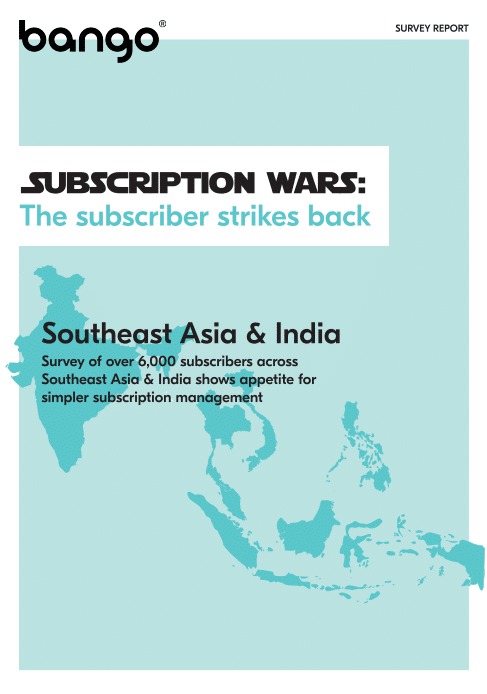
The issue of piracy in the streaming content industry is gaining significant attention as a recent study conducted by Bango reveals that 44% of Asian consumers now resort to illegal piracy sites due to the rising cost of subscription services. The study, which delved into subscription trends and the emergence of Super Bundling across Asia, analyzed data from over 6,000 consumers in countries including India, Indonesia, Malaysia, the Philippines, Thailand, and Vietnam.
In a stark revelation, the study found that a staggering 59% of Asian consumers cited financial constraints as the primary reason for turning to piracy. With the cost of living continuing to rise, nearly half of these consumers (44%) have opted for illegal means to access their desired content.
The report paints a clear picture of the subscription squeeze experienced by many Asians. Nearly one-third (29%) of respondents admitted to having five or more subscription services, while in countries like Thailand, a staggering 63% expressed their inability to afford the subscriptions they desire. This figure climbed even higher in Malaysia, where an astonishing 79% of consumers reported financial constraints preventing them from enjoying their preferred subscriptions.
To address this growing issue and better manage their expenses, Asian subscribers are increasingly seeking a unified platform or app to consolidate all their subscriptions, ranging from streaming and gaming to fitness and more. An overwhelming 91% of respondents believe that such a platform would significantly aid in managing their monthly household expenses.
The frustration stemming from the lack of a centralized subscription management system is evident, with 59% of respondents expressing their annoyance at not having all their subscriptions in one place. A quarter of subscribers also struggle to renew contracts across multiple accounts, further fueling the demand for a single ‘Super Bundling’ content hub.
Anil Malhotra, Co-founder at Bango, emphasized the importance of addressing this trend, stating, “With escalating household expenses and a surge of new entrants in the streaming market, content providers need to ensure they offer subscribers value for money. If they don’t, our data indicates that many consumers will resort to piracy instead.”
Malhotra also highlighted the role of telecom companies in combatting this issue by offering subscribers a simplified solution. He stated, “Telcos in the region have a major role to play, by helping subscribers make sense of their subscription commitments. By offering these services through a Super Bundling subscriptions hub, delivered through existing telco billing relationships, telcos and their content partners can take the wind out of the sails of this growing trend towards piracy.”
The demand for a Super Bundling solution is resonating strongly across Southeast Asia and India, with 93% of consumers expressing their desire for a single platform to manage all their subscriptions. This consolidation would not only streamline the subscription management process but also work to disincentivize piracy.
If Super Bundling services were made available, the data suggests that it would lead to increased customer retention and loyalty for telecom companies, with 89% of respondents indicating that they would spend more time using subscriptions, and 81% expressing their intent to sign up for additional subscriptions. An overwhelming 95% of respondents also said they would feel more loyal to brands offering bundled content hubs, while 66% would even consider switching telco providers to gain access, underscoring the potential competitive advantage for companies that offer this solution.
Anil Malhotra concluded, “This is where Bango comes in. The Bango Digital Vending Machine makes it simple for telcos to aggregate and bundle subscriptions into a single user-friendly experience. Super Bundling subscriptions all in one place boosts customer satisfaction, making it simple for content providers and telcos to tap into this opportunity.”
For a detailed look at Bango’s research data, you can read the full study here.
This article was written by AI and edited by Bill Hartzer.